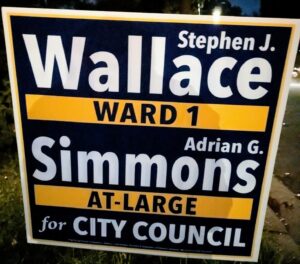Guardianship Duties for An Incapacitated Adult
Find Us Online
Building wealth is only half the job. Protecting wealth for your loved ones and yourself is equally important. Through estate planning, business planning, and asset protection, our firm will help you protect everything you love — family, friends and favorite charities. For more information be sure to visit our web site where you will have access to our blog, events schedule and a complimentary newsletter subscription!
Guardianship Duties for An Incapacitated Adult
When an adult becomes incapacitated, and no advance planning has been done, someone needs to become a guardian to care for the incapacitated person. That individual is then known as the “ward.” This requires a court proceeding to decide who should become the
Guardianship procedures are more costly than creating a comprehensive estate plan, which includes planning for incapacity.
How does a guardian handle the ward’s finances?
The guardian is required to act as the ward’s fiduciary, putting the ward’s interests before their own. The guardian must keep meticulous records and be able to account for every dollar spent. In most cases, the guardian reports to the court annually. The guardian’s finances must be kept separate from the ward’s accounts. No funds from the ward’s accounts or any trusts created for the ward should ever find their way into the guardian’s account (known as “commingling”), even if it would be far more efficient for cash management.
The guardian may also be responsible for applying for government benefits on behalf of the ward, overseeing the sale of the ward’s home, and managing the ward’s investments. If the guardian is only responsible for finances, they are often known as a “conservator” to distinguish this more limited role.
Does a guardian get involved in day-to-day living arrangements?
In most cases, the guardian is also responsible for the person’s care, including housing and daily living. Accordingly, the guardian’s
What kind of health care decisions is the guardian responsible for?
Healthcare decisions are also the guardian’s responsibility. The guardian is charged with making medical decisions in the ward’s best interest and, to the best of their ability, to make decisions just as the ward would have if the ward were able to do so. The guardian speaks with the ward’s health care providers and works with them to make sure that the ward gets any needed care. If possible, the guardian should honor the preferences and consult with the ward.
Am I responsible for the ward’s expenses?
The guardian is responsible for managing the finances of their ward. However, they are not expected to use their own financial resources for their ward. Nevertheless, a guardian may be held responsible if assets are available and the guardian is not keeping bills current. The guardian needs to disclose the legal status consistently to avoid potential personal liabilities for expenses. Simple errors or oversights may be treated severely by the court. Therefore, detailed records and attention to due dates are very important for the guardian.
Generally speaking, if you act in good faith, with diligence and care, the guardianship should not be an overly burdensome responsibility. In an ideal situation, even if one person in the family is the legal guardian, other family members are involved in their loved one’s life to ensure the best possible quality of life.
It is much better to make plans to handle disability without court involvement. Talk to an estate planning attorney to get that process protected.
Copyright © Integrity Marketing Solutions. All Rights Reserved.

 to planning for incapacity.
to planning for incapacity.
 niece, nephew, or trusted friend may be your executor.
niece, nephew, or trusted friend may be your executor.
 have the same professional credentials. Conduct your own due diligence and comparison shop. Ask for fee schedules and an explanation of the decision-making process. With a nonfamily member fiduciary, drafting in the document a mechanism for removing without litigation, such as a trust protector, allows for checks and balances.
have the same professional credentials. Conduct your own due diligence and comparison shop. Ask for fee schedules and an explanation of the decision-making process. With a nonfamily member fiduciary, drafting in the document a mechanism for removing without litigation, such as a trust protector, allows for checks and balances. They need to be able to handle detailed transactions from beginning to end.
They need to be able to handle detailed transactions from beginning to end.

 the law sunsets on January 1, 2026. An estate plan based on the 2017 TCJA with no provision for a federal estate tax exemption sliced in half may present significant estate tax issues for many Americans.
the law sunsets on January 1, 2026. An estate plan based on the 2017 TCJA with no provision for a federal estate tax exemption sliced in half may present significant estate tax issues for many Americans. playing games, surfing the web, and participating in sports and exercise.
playing games, surfing the web, and participating in sports and exercise.
 chunks.
chunks. your own state’s plan, you may get a healthy deduction on state income taxes. In addition, funds in the account grow tax-free, and there are no taxes on capital gains. For grandparents, funding a 529 account is an excellent way to help pay qualified education costs, while reducing their taxable estate. However, there are limits to contributions, which vary from state to state.
your own state’s plan, you may get a healthy deduction on state income taxes. In addition, funds in the account grow tax-free, and there are no taxes on capital gains. For grandparents, funding a 529 account is an excellent way to help pay qualified education costs, while reducing their taxable estate. However, there are limits to contributions, which vary from state to state. Will, and HIPAA form.
Will, and HIPAA form.
 and communicate with all step-siblings. The nature and quality of the relationships should be considered in weighing out responsibilities. Dividing along biological lines may not be the right solution. This needs to be discussed and resolved.
and communicate with all step-siblings. The nature and quality of the relationships should be considered in weighing out responsibilities. Dividing along biological lines may not be the right solution. This needs to be discussed and resolved. even funeral arrangements should all be discussed. Expectations should be set for inheritances now—it is best for stepsiblings to know what the future holds to eliminate surprises.
even funeral arrangements should all be discussed. Expectations should be set for inheritances now—it is best for stepsiblings to know what the future holds to eliminate surprises.
 . Although the forms are not yet in, the register of wills has presented a basic overview.
. Although the forms are not yet in, the register of wills has presented a basic overview. gatherings? Intermingled with the joy, there may be some sorrow in those walls, too.
gatherings? Intermingled with the joy, there may be some sorrow in those walls, too. dollar value, others may protect the homestead to varying degrees depending on how long you have lived in your home, and still, others may provide complete protection to married couples when they jointly own the home as tenants by the entirety. In the end, state law will control when it comes to the degree of protection afforded your home ownership. An experienced estate planning attorney can explain the protection unique to the laws of your state.
dollar value, others may protect the homestead to varying degrees depending on how long you have lived in your home, and still, others may provide complete protection to married couples when they jointly own the home as tenants by the entirety. In the end, state law will control when it comes to the degree of protection afforded your home ownership. An experienced estate planning attorney can explain the protection unique to the laws of your state. revocable and amendable by you during your lifetime, too.
revocable and amendable by you during your lifetime, too.
